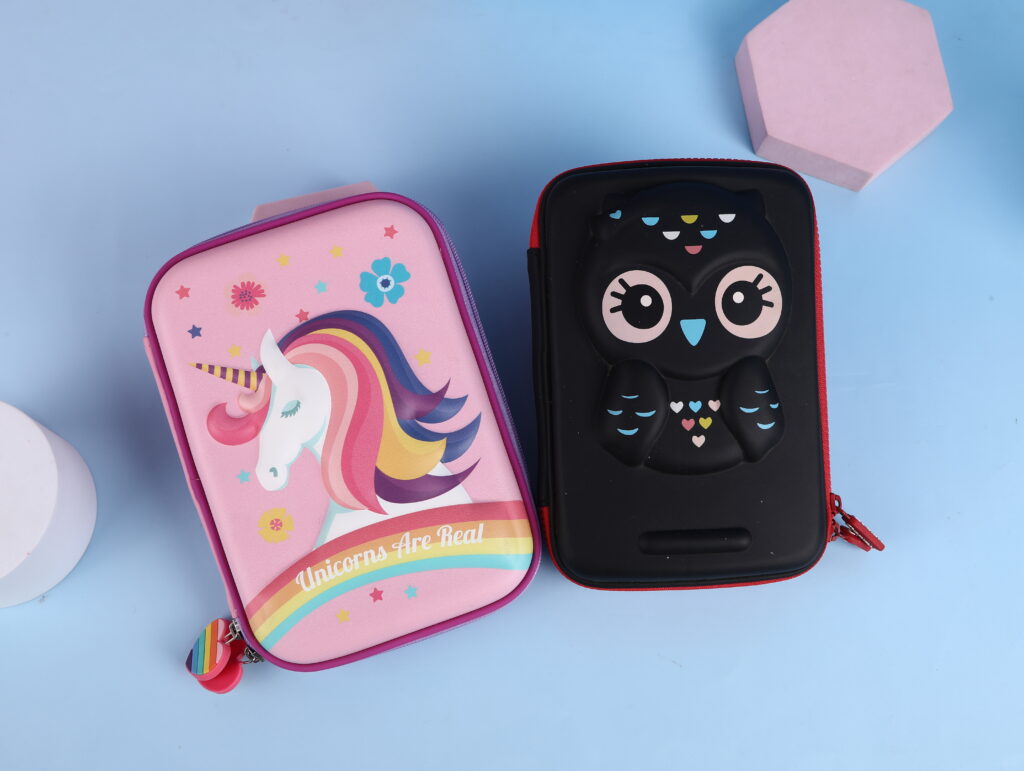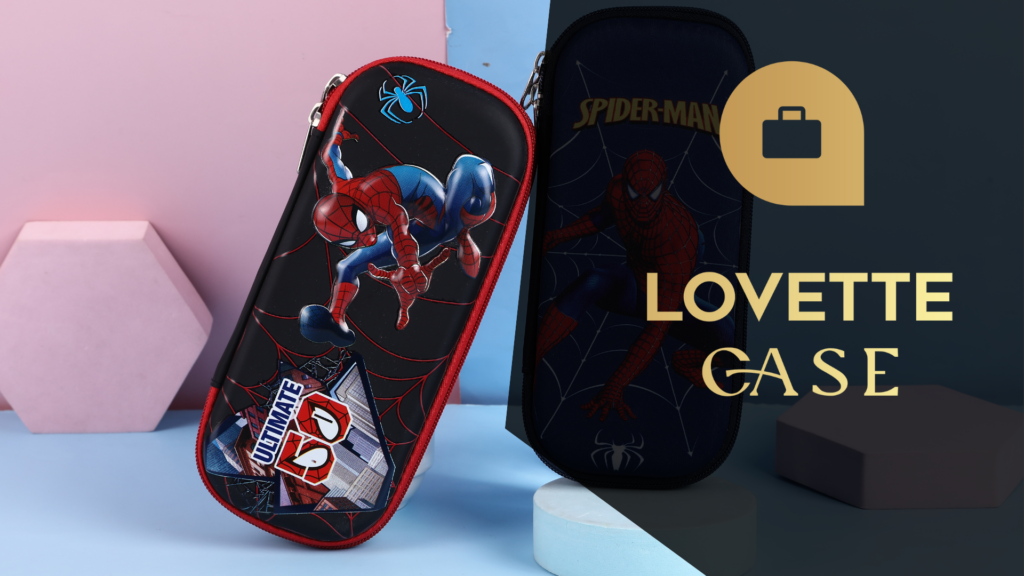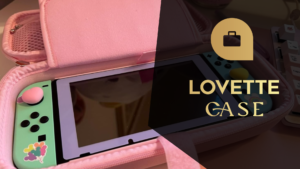In the dynamic world of product merchandising, integrating intellectual property (IP) characters into everyday items like pencil cases presents an exhilarating opportunity to innovate and captivate a diverse market. These aren’t just any products; they are a portal to connecting with consumers on a deeper level, bringing the excitement of beloved characters from blockbuster movies, cherished cartoons, and iconic franchises right into the hands and hearts of fans. As we delve into this guide, you’ll discover the strategic benefits of harnessing the power of popular characters, learn the ins and outs of securing the necessary licenses, and explore how to creatively and commercially bring these characters to life in your product lines.
Discover how to enhance pencil cases by licensing popular IP characters. This guide covers the complete process, from conducting market analysis to identify trending characters, to negotiating favorable licensing terms, and managing legal agreements effectively. Learn strategic steps for securing IP rights, which include understanding audience preferences, approaching rights holders, and finalizing contracts to ensure compliance and maximize marketability.
Opportunities in the Market for Licensed Pencil Cases
In the vibrant and competitive world of stationery, leveraging intellectual property (IP) characters is not just a marketing tactic—it’s a strategic advantage. This segment explores the tangible market opportunities that licensed pencil cases offer, backed by compelling data and real-world applications that underline their potential for boosting sales, enhancing brand visibility, and expanding market reach.
Demand for Licensed Character Pencil Cases
The allure of IP characters in consumer goods is undeniable. Recent studies indicate that products featuring characters from globally recognized franchises can increase consumer interest by up to 30%. For instance, merchandise tied to major film releases, like the Avengers or Frozen, sees a significant uplift in sales during and after the cinematic window. These products capture not only the attention of the direct consumer base—children and teenagers—but also attract collectors and enthusiasts, broadening the product’s appeal. The emotional connection fans hold with these characters translates into a powerful consumer behavior: brand loyalty and repeat purchases. This phenomenon is reflected in the sales spikes observed in stationery items during back-to-school periods, particularly when they coincide with major media events or releases.
Differentiating Brands with Licensed Characters
Introducing licensed characters into a product line serves as a key differentiator in saturated markets. Brands that collaborate with popular IPs enjoy a distinct market presence, perceived as trendsetters and leaders in innovation. For example, a pencil case featuring Pikachu or Harry Potter can immediately stand out from generic alternatives, drawing in not only fans of Pokémon and the Wizarding World but also those who seek unique and expressive products. This differentiation goes beyond simple product features; it involves embedding your brand into the broader cultural conversations and trends, thereby elevating brand perception and increasing consumer engagement across various platforms.
Expanding Market Reach Through Licensing
Licensing popular characters allows brands to tap into established fan bases, multiplying their reach exponentially. Each character comes with its own demographic profile, enabling targeted marketing strategies. For example, Marvel characters might appeal broadly across age groups, whereas Peppa Pig is more focused on younger children. This segmentation allows for precision in marketing efforts, from direct advertising to strategic placements in retail environments known to attract specific groups. Moreover, licensed products often benefit from synergistic promotional effects, such as tie-ins with movie releases, TV show premieres, or special events, which can significantly amplify a product’s visibility and desirability.
Additionally, the global recognition of major IP characters facilitates entry into international markets, where familiarity with these characters can reduce barriers to entry and increase acceptance. For instance, Disney characters are universally recognized, easing localization efforts and marketing campaigns across diverse geographic markets. This global appeal ensures that licensed pencil cases can reach a wider audience, achieving scale and penetration that might be challenging with non-licensed products.
Harnessing the power of IP characters in designing pencil cases isn’t merely a branding exercise—it’s a robust strategy to captivate and engage a diverse audience, distinguish your offerings, and extend your market footprint internationally. With consumer behavior heavily influenced by emotional connections to beloved characters, and a global landscape increasingly driven by media consumption, the potential for growth and profitability in licensed pencil cases is both significant and actionable.
Understanding IP Character Licensing
Intellectual Property (IP) Character Licensing is a strategic tool that transforms the marketplace potential of consumer products by integrating popular media characters into their design. This section explores the critical components of IP character licensing, its implications for product merchandising, and practical steps for securing and capitalizing on these opportunities.
Explaining IP Character Licensing
IP character licensing is the process of legally obtaining the rights to use characters from movies, television, video games, and other entertainment media on your products. This approach is crucial in product merchandising as it leverages the emotional connections and built-in fan bases associated with these characters to enhance product appeal and drive sales. For instance, a pencil case featuring characters from “Frozen” not only attracts fans of the movie but also benefits from the marketing and popularity of the brand itself. The presence of such characters on merchandise can significantly increase its visibility, desirability, and ultimately, market performance.
Overview of Licensing Agreements
A licensing agreement is the cornerstone of using IP characters effectively and legally. It dictates the relationship between the IP owner (licensor) and the manufacturer (licensee) and covers several critical areas:
1.Scope of Rights: This defines which characters can be used, on what products, and in which territories. For example, the rights to use Marvel characters on pencil cases might be limited to certain regions or specific characters.
2.Obligations and Quality Control: Licensees are typically required to maintain certain standards in product quality that align with the licensor’s brand image. This includes adhering to specific design guidelines and submitting products for approval before production.
3.Financial Arrangements: Most agreements involve an upfront fee and ongoing royalties based on sales. For instance, royalties might range from 5% to 15% of the wholesale price, reflecting the value of the character’s brand.
4.Term and Termination: Details the duration of the licensing agreement and conditions under which either party can terminate the deal, often related to sales performance or breach of contract.
Understanding these elements is vital for negotiating terms that maximize profitability while maintaining brand integrity and compliance with the licensor’s expectations.
How to Find Licensing Opportunities
Securing the right IP character license involves several strategic steps, each aimed at aligning your product line with profitable and marketable characters:
1.Market and Trend Analysis: Conduct thorough research to identify which characters are currently popular or are projected to rise in popularity. This can include analyzing box office trends, following entertainment news, and studying market reports.
2.Networking at Industry Events: Attend film markets, toy fairs, and licensing expos to make direct contacts with licensing agents and IP owners. These venues offer invaluable opportunities for face-to-face negotiations and gaining insights into upcoming licensing availabilities.
3.Engaging Licensing Agents: These professionals specialize in bridging the gap between IP owners and potential licensees. They can provide access to exclusive licensing opportunities, assist with negotiations, and help navigate the complexities of licensing agreements.
4.Direct Outreach: Develop relationships directly with IP holders by contacting them through their licensing departments. This direct approach can sometimes lead to more favorable terms and a better understanding of the licensing potential.
Grasping the nuances of IP character licensing opens up a world of possibilities for product innovation and market differentiation. By strategically selecting and negotiating character licenses, your brand can not only enhance its product offerings but also tap into established fan bases, thereby driving sales and expanding market reach. With the right approach and understanding, IP character licensing can be a game-changer for your business.

Obtaining an IP Character License for Pencil Cases
Navigating the complexities of intellectual property (IP) character licensing can be a pivotal game-changer for businesses aiming to leverage popular characters in their pencil case designs. This step-by-step guide will delve into the details of each phase of the licensing process, from initial research to the final agreement, providing practical, actionable advice.
Market Analysis for Licensing
1.Research Popular Trends: Utilize tools such as Google Trends, entertainment industry reports, and social media analytics to identify characters that are currently trending or have consistent popularity.
2.Understand Your Audience: Conduct surveys or focus groups to understand which characters resonate with your target market segments—children, teenagers, or even adults who appreciate nostalgic items.
How to Identify and Approach Rights Holders
1.Locate Ownership Information: Use industry databases such as Licensing International’s member directory or entertainment databases like IMDb Pro to find out who holds the licensing rights to the characters you’re interested in.
2.Professional Introductions: Craft a compelling introductory email or letter, clearly stating your business background, product idea, target market, and how the character aligns with your brand values. Attach a product portfolio or business plan to demonstrate credibility and seriousness.
Key Strategies for Licensing Negotiations
1.Gather Comparative Data: Before negotiations, gather data on similar licensing deals within your industry. This information can be found in trade publications or through networking with other professionals at industry events.
2.Set Clear Objectives: Determine the maximum royalty rate your business can afford while remaining profitable, and decide on the critical elements you need, such as exclusivity in your market or specific product categories.
3.Use a Professional Mediator: Consider hiring a licensing agent or lawyer who specializes in intellectual property rights to help mediate discussions and offer expert advice.
4.Build a Relationship: Foster a collaborative relationship with the licensor by showing understanding and respect for their brand and intellectual property.
5.Flexible Deal Structuring: Be open to structuring deals that could involve stepped royalties, where the rate increases as sales targets are met, or offering a minimum guarantee with provisions for performance reviews.
Finalizing a Licensing Agreement
1.Legal Scrutiny: Have the contract reviewed by a lawyer who specializes in intellectual property to ensure all terms are clear, enforceable, and in your best interest.
2.Check for Hidden Clauses: Pay particular attention to clauses related to termination rights, renewal conditions, and any penalties for non-compliance.
3.Signatures: Ensure that all parties sign the contract with the correct legal entities. Use electronic signature platforms for timely and secure processing.
4.Record Keeping: Maintain a copy of the fully executed agreement in your records, accessible to key team members involved in the project.
How to Find New Licensing Opportunities
1.Attend Licensing Trade Shows and Expos: Regular attendance at events like the Licensing Expo or Brand Licensing Europe can provide direct access to licensors and new characters entering the market.
2.Industry Publications and Insights: Subscribe to licensing industry publications such as The Licensing Letter or License Global to stay updated on new opportunities and industry trends.
3.Build Industry Relationships: Establish connections with industry insiders who can provide insights or introductions to licensing opportunities.
4.Leverage Social Media: Follow and engage with character brands and creators on platforms like LinkedIn and Instagram to build relationships and stay informed about licensing opportunities.
Securing an IP character license requires careful planning, skilled negotiation, and thorough contract management. By following these detailed steps, your business can successfully incorporate popular characters into your pencil cases, enhancing your product’s appeal and marketability.
How to Develop a Licensed Pencil Case
Integrating popular IP characters into pencil cases can transform a basic utility item into a coveted piece of merchandise. This process involves strategic planning across market research, design, development, marketing, and distribution to ensure the product not only resonates with consumers but also achieves substantial market success.
Licensing Opportunities in the Stationery Industry
To effectively tap into the stationery market, conduct thorough market analysis to identify which IP characters resonate most with consumers, particularly focusing on trends that indicate a strong following and sustained interest across diverse demographics. Analyze sales data, performance of related merchandise, and social media engagement metrics to pinpoint characters that have not only historical appeal but also show potential for future growth. This approach helps in selecting characters that will ensure the licensed product appeals to both existing fans and potential new customers, maximizing its commercial success.
Pencil Case Design and Development
The design and development process for a licensed pencil case should begin with a creative brainstorming phase that integrates the character’s visual and thematic elements into the product design, ensuring that the result is both functional and appealing. Follow this by developing initial sketches and prototypes, continuously refining these based on feedback from target user groups to hone in on the design that best meets consumer expectations and stays true to the character’s essence. It is crucial to collaborate closely with licensors to ensure that every aspect of the design adheres to brand guidelines and fulfills contractual obligations, thereby avoiding potential legal or brand image issues down the line.
Marketing and Distributing Licensed Products
Developing strategic marketing plans that effectively communicate the unique attributes of the licensed pencil case is essential; this should include narrative-driven marketing that connects emotionally with consumers, highlighting the character’s story and how the product fits into that narrative. Utilize both traditional and digital marketing channels to create a comprehensive campaign that reaches consumers at multiple touchpoints. For distribution, forge partnerships with retailers who specialize in or are known for carrying licensed merchandise, complementing this with an online strategy that targets e-commerce platforms frequented by fans of the character, thus ensuring the product is readily accessible both in-store and online.
Successfully developing a licensed pencil case involves careful alignment of product design with market demands, strategic marketing, and precise distribution. This comprehensive approach ensures that the final product not only meets consumer expectations but also stands out in a competitive market, driving both sales and brand enhancement.
The journey of developing pencil cases with IP character licenses is filled with opportunities that extend far beyond mere aesthetic enhancements. These products not only cater to a dedicated fan base but also attract new customers through their appealing designs and cultural relevance. The integration of beloved characters into everyday school and office supplies transforms a standard product into a standout piece, driving higher consumer interest and allowing for premium pricing. Moreover, these licensed items often enjoy increased shelf visibility and enhanced brand recognition, which are crucial in competitive retail environments. By leveraging the power of well-known characters, manufacturers can tap into established markets and fan communities, ensuring sustained sales and enhanced market reach.
For manufacturers and marketers, the appeal of IP character licensed pencil cases represents a clear call to action. This is not merely an opportunity to diversify product lines but a strategic move to capitalize on the immense popularity of global characters. Whether you are looking to invigorate your existing offerings or aiming to break into new market segments, exploring IP character licenses opens up a wealth of possibilities. With careful planning, creative marketing, and strategic distribution, these products can significantly boost your company’s profile and profitability.
At Lovette Case, we understand the dynamic nature of the stationery industry and the unique appeal of licensed products. We encourage you to consider the potential that IP character licenses hold for your product development strategies. If you’re ready to explore these lucrative opportunities, Lovette Case is here to guide you through every step of the process, from securing licenses to product design and market launch. Let’s harness the power of popular culture together and create products that not only sell but also delight and engage consumers across the globe. Contact us today to start your journey in transforming ordinary pencil cases into extraordinary market successes.











